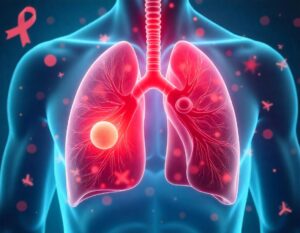Sleep is essential for our overall well-being, yet many people struggle with getting a good night’s rest due to sleep disorders. In India, sleep disorders are increasingly common, with conditions like sleep apnea affecting a significant portion of the population. A sleep study, or polysomnography, is a crucial diagnostic tool that helps identify and treat these disorders, leading to improved sleep quality and overall health. In this blog, we’ll explore what a sleep study is, when you should consider one, what to expect during the process, and how the results can lead to effective treatments.
What is a Sleep Study?
A sleep study, or polysomnography, is a non-invasive test that monitors various physiological activities during sleep. It’s conducted to diagnose sleep disorders by recording brain waves, oxygen levels, heart rate, breathing, and movements. There are two primary types of sleep studies:
- In-lab Polysomnography: Conducted in a sleep lab, this study involves comprehensive monitoring with sensors placed on your body to track different physiological parameters.
- Home Sleep Apnea Testing (HSAT): For some patients, an at-home study might be recommended. While less comprehensive, HSAT is convenient and focuses primarily on diagnosing obstructive sleep apnea (OSA).
Sleep studies can diagnose a range of conditions, including Obstructive Sleep Apnea (OSA), central sleep apnea, insomnia, narcolepsy, and restless legs syndrome. Identifying these conditions is vital for effective treatment and better sleep health.

When Should You Consider a Sleep Study?
Recognizing the symptoms of sleep disorders is the first step toward better sleep. If you experience any of the following symptoms, you may need a sleep study:
- Chronic Snoring: Loud and persistent snoring, especially when accompanied by choking or gasping sounds, can indicate sleep apnea.
- Daytime Sleepiness: Excessive daytime fatigue and sleepiness, even after a full night’s sleep, can signal a sleep disorder.
- Morning Headaches: Frequent morning headaches may be a result of poor oxygenation during sleep.
- Insomnia: Difficulty falling or staying asleep might suggest an underlying sleep disorder.
- Difficulty Concentrating: Lack of focus and concentration during the day can be linked to poor sleep quality.
Certain risk factors also increase the likelihood of sleep disorders, including obesity, a family history of sleep apnea, and lifestyle habits such as smoking and alcohol use.
What to Expect During a Sleep Study
Understanding the sleep study process can help alleviate any concerns you might have.
Preparation: Before your sleep study, your doctor will give you instructions on how to prepare. This usually includes avoiding caffeine and alcohol, which can interfere with sleep. It’s also recommended to bring comfortable sleepwear and any medications you take regularly.
During the Study: Upon arrival at the sleep lab, a technician will explain the procedure and attach sensors to your body. These sensors monitor brain activity, eye movements, muscle tone, heart rate, breathing patterns, and blood oxygen levels. The study typically lasts through the night, allowing the technicians to gather data on your sleep stages, disruptions, and overall sleep architecture.
The sleep environment in the lab is designed to be comfortable and conducive to sleep, although it may take some time to adjust to the sensors and the setting.
After the Study: Once the study is completed, the data collected will be analyzed by a sleep specialist. You will have a follow-up appointment to discuss the results and the recommended treatment options.
Understanding the Results
The results of a sleep study are detailed and can provide insights into various aspects of your sleep. Key metrics include:
- Sleep Stages and Cycles: Analysis of your sleep stages (REM and non-REM) and how frequently they are disrupted.
- Apnea-Hypopnea Index (AHI): The number of apnea (pauses in breathing) and hypopnea (shallow breathing) events per hour, which is crucial for diagnosing sleep apnea.
- Oxygen Desaturation Levels: Measures the drop in blood oxygen levels during apnea events.
- Movement Disorders: Identification of abnormal movements that may indicate conditions like restless legs syndrome.
Based on these findings, your doctor will explain any diagnosed conditions and recommend appropriate treatment.
Treatment Options Based on Sleep Study Results
Treatment options vary depending on the sleep disorder diagnosed.
Positive Airway Pressure (PAP) Therapy: For sleep apnea, Continuous Positive Airway Pressure (CPAP) therapy is the most common treatment. CPAP machines keep your airway open by providing a constant stream of air through a mask worn during sleep. Other variations include BiPAP (Bi-level Positive Airway Pressure) and APAP (Auto-adjusting Positive Airway Pressure).
Lifestyle Changes: Simple lifestyle modifications can significantly improve sleep quality. These may include weight management, quitting smoking, reducing alcohol consumption, and practicing good sleep hygiene.
Surgical Options: In severe cases of sleep apnea, surgical interventions like Uvulopalatopharyngoplasty (UPPP) or Inspire therapy, a surgically implanted device that stimulates airway muscles, may be recommended.
Medications: For conditions like insomnia or narcolepsy, specific medications may be prescribed to help regulate sleep patterns.
Other Interventions: Oral appliances to reposition the jaw and positional therapy to prevent sleeping on your back are additional treatment options.
Conclusion
A sleep study is more than just a diagnostic tool; it’s a gateway to understanding and improving your overall health. Sleep disorders, when left untreated, can lead to serious health complications, including cardiovascular issues, diabetes, and even mental health concerns. By undergoing a sleep study, you’re taking a proactive step towards identifying potential problems and finding effective solutions. Whether you’re dealing with obstructive sleep apnea, insomnia, or another sleep-related issue, a proper diagnosis is the first step toward reclaiming your nights and revitalizing your days.
If you’re experiencing symptoms of a sleep disorder, such as chronic snoring, daytime fatigue, or difficulty concentrating, it’s essential to address them before they impact your overall health. At Apex Pulmonology, we specialize in diagnosing and treating sleep disorders with the latest technology and a compassionate approach. Our state-of-the-art sleep lab provides a comfortable environment for accurate and comprehensive sleep studies, ensuring that you receive a clear diagnosis and an effective treatment plan. Don’t let poor sleep affect your quality of life—schedule a consultation with our experienced team today and start your journey towards restful, restorative sleep. At Apex Pulmonology, your health and well-being are our top priorities.







